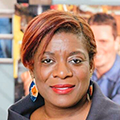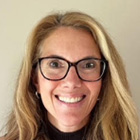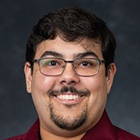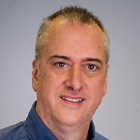
Lola Olabode
Research Program Manager
The Water Research Foundation
Keynote: Microplastics in the Water Cycle - A Global Challenge!
Abstract
There is increasing public concern over the amount of plastic pollution in the environment and its effect on human health and ecosystems. Measurement methods for microplastics (MPs) vary significantly, and there is no universal protocol for sample preparation, which can make results hard to compare. Governmental agencies, water managers, food safety authorities and plastic producers face uncertainties with respect to abundance and effects of microplastics in the environment, which impedes the development of sustainable solutions. Various water treatment processes, particularly for sizes smaller than 300 microns (0.3 millimeters), need additional research on the risk assessment and the removal of MPs (and microfibers). A better understanding of microplastics occurrence, removal, fate and transport in water treatment throughout the water supply chain, using quality- assured methods to determine the numbers, shapes, sizes, composition and sources of microplastics, and to better characterize the effectiveness of water treatment will benefit the One Water community.
This presentation will provide current insight and an overview of microplastics in the water cycle, share some key knowledge gaps based on peer-reviewed literature, and present late-breaking information.
About the Speaker
Lola Olabode works as a Research Program Manager at the Water Research Foundation (WRF), where she has worked since 2000. Prior to the Foundation, Lola worked as an epidemiologist investigating food and waterborne outbreaks at the Maryland State Department of Health and Mental Hygiene. Lola directs a comprehensive and dynamic research portfolio on compounds of emerging concern, microplastics in water, and receiving water linkages in water quality. Lola is on the scientific advisory boards for the Global STEWARDS National Science Foundation National Research Traineeship (NRT) Program at the University of Maryland, College Park, and the Emerging Contaminants Summit. She is an active member of the Water Environment Federation’s (WEF) Disinfection and Public Health Committee (DPHC). Lola has a Bachelor's degree in chemistry from Tougaloo College, a Master's degree in public health from the George Washington University, and is a board certified environmental scientist by eminence.













